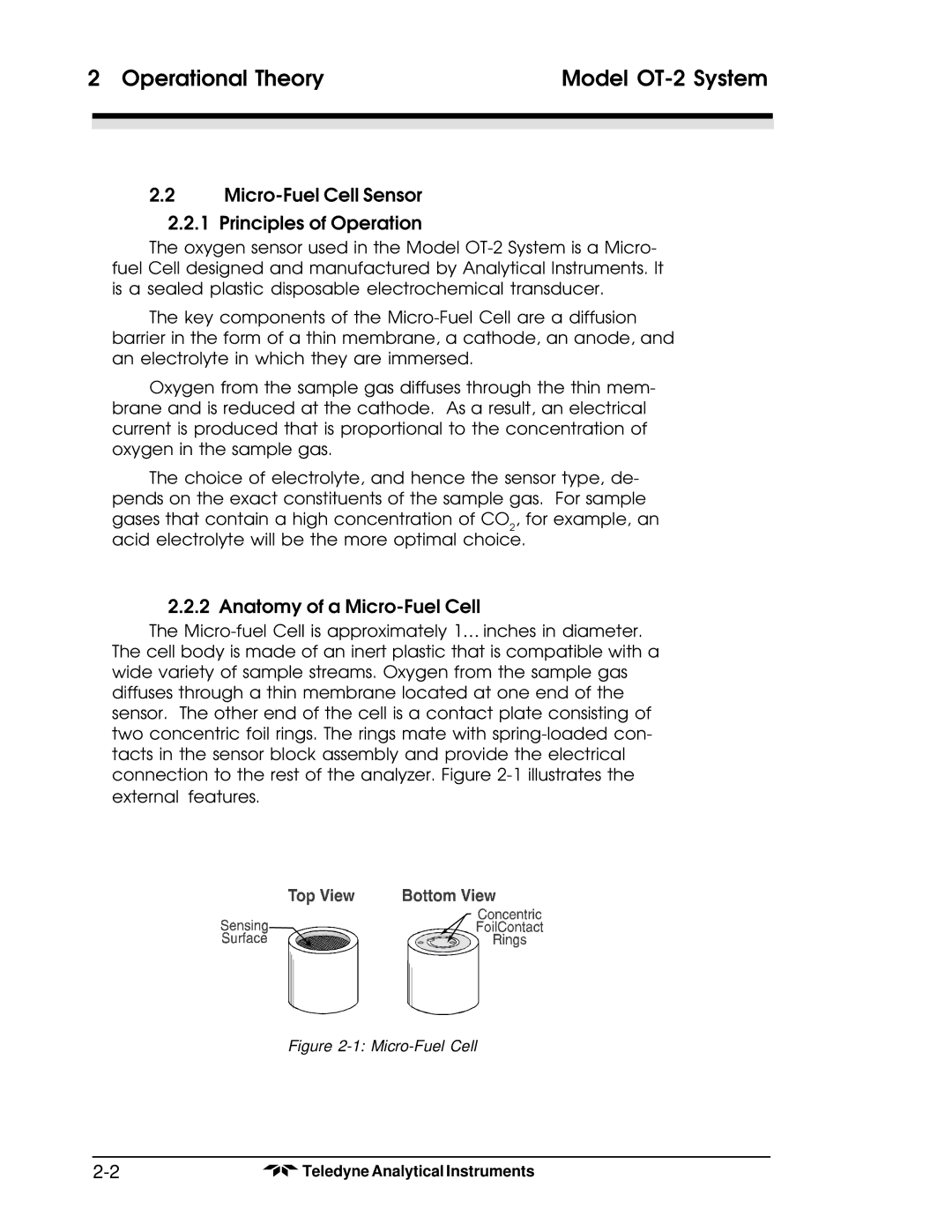
2 Operational Theory | Model | |
|
|
|
|
|
|
2.2Micro-Fuel Cell Sensor
2.2.1Principles of Operation
The oxygen sensor used in the Model
The key components of the
barrier in the form of a thin membrane, a cathode, an anode, and an electrolyte in which they are immersed.
Oxygen from the sample gas diffuses through the thin mem- brane and is reduced at the cathode. As a result, an electrical current is produced that is proportional to the concentration of oxygen in the sample gas.
The choice of electrolyte, and hence the sensor type, de- pends on the exact constituents of the sample gas. For sample gases that contain a high concentration of CO2, for example, an acid electrolyte will be the more optimal choice.
2.2.2 Anatomy of a
The
Figure 2-1: Micro-Fuel Cell
Teledyne Analytical Instruments |
